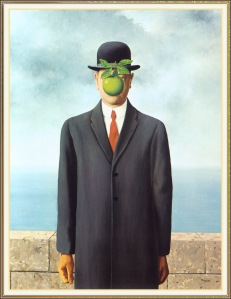Después de un largo dormir, el despertar fue abrupto. Repentino. Poético.
Abrió los ojos y entre el sueño y la vigilia el mundo tomó forma. Otra forma, una que no había visto porque sus ojos siempre miraron lo mismo.
De repente, como un rayo solitario en un cielo claro, vio toda su vida. Su infancia, su adolescencia, su presente. Siempre la misma idea, siempre el mismo temor: ser notada, sobresalir. Y cada vez que algo, un mínimo destello, una pequeña señal indicara que la mirada del otro se posaba en ella, en su cuerpo, en sus actos, abandonaba todo y corría por refugio.
Claro, no se trataba de la realidad pues nadie la miraba, por lo menos no de la forma en la que ella suponía. Era ella la mirada, eran sus ojos los que buscaban esa confirmación una y otra vez.
Ahora, con ese despertar había otra forma. Recordó sus sueños de infancia: ser importante, sobresalir, cambiar el mundo. Recordó también sus clases de música, las felicitaciones, los conciertos, y cómo de repente todo eso perdía sentido, dejaba de interesarle. Claro, sobresalía.
Siempre sintió un exceso en su cuerpo, lo femenino de su forma la inquietaba profundamente. Los hombres la miraron desde temprana edad, y lidiar con esa mirada y excitación era difícil. Fue más fácil esconderse en ropa holgada, masculina, o vestirse con envolturas de alfajores de chocolate, engordando, ocultando.
Nunca supo bien cómo relacionarse con los hombres, menos aún con las mujeres. Los hombres le parecían fáciles de leer, no proponían sorpresa. Las mujeres, en cambio, le generaban un cierto rechazo, porque eran absolutamente impredecibles, sin medida, sin límite. La propia mujer en ella era un problema, y por eso se disfrazaba de hombre, o de mujer, de revolucionaria, de luchadora, de cualquier cosa que sirviera para ocultar esa extraña fragilidad que no sabía cómo manejar.
Despertó, y no podría volver a dormir, por lo menos no ese sueño de independencia y feminismo mentiroso. Justamente descubrió, al abrir los ojos, que no bastaba la forma femenina para saber qué hacer con ese cuerpo femenino. Y que todo el sueño que soñó antes, era de ella, y no de otro.
Líneas poéticas
Líneas poéticas encarnadas
Líneas necesarias, explicaciones superfluas.
Hesíodo sueña y el mundo lo olvida
*
Y muera como un tigre el sol eterno
*
Y mientras cree tocar enardecido
el oro aquel que matará la Muerte,
Dios, que sabe de alquimia, lo convierte
en polvo, en nadie, en nada y en olvido
*
Dios mueve al jugador, y éste, la pieza
¿Qué Dios detrás de Dios la trama empieza
de polvo y tiempo y sueño y agonía?
*
Cuando nació, las estrellas se abrazaron
*
The Hollow Men, de T. S. Eliot (1925)
Hay poemas que son necesarios para la vida, he aquí uno de ellos.
The Hollow Men, by T. S. Eliot (1925)
A penny for the old guy
I
We are the hollow men
We are the stuffed men
Leaning together
Headpiece filled with straw. Alas!
Our dried voices, when
We whisper together
Are quiet and meaningless
As wind in dry grass
Or rats’ feet over broken glass
In our dry cellar
Shape without form, shade without colour,
Paralysed force, gesture without motion;
Those who have crossed
With direct eyes, to death’s other Kingdom
Remember us — if at all — not as lost
Violent souls, but only
As the hollow men
The stuffed men.
II
Eyes I dare not meet in dreams
In death’s dream kingdom
These do not appear:
There, the eyes are
Sunlight on a broken column
There, is a tree swinging
And voices are
In the wind’s singing
More distant and more solemn
Than a fading star.
Let me be no nearer
In death’s dream kingdom
Let me also wear
Such deliberate disguises
Rat’s coat, crowskin, crossed staves
In a field
Behaving as the wind behaves
No nearer —
Not that final meeting
In the twilight kingdom
III
This is the dead land
This is cactus land
Here the stone images
Are raised, here they receive
The supplication of a dead man’s hand
Under the twinkle of a fading star.
Is it like this
In death’s other kingdom
Waking alone
At the hour when we are
Trembling with tenderness
Lips that would kiss
Form prayers to broken stone.
IV
The eyes are not here
There are no eyes here
In this valley of dying stars
In this hollow valley
This broken jaw of our lost kingdoms
In this last of meeting places
We grope together
And avoid speech
Gathered on this beach of the tumid river
Sightless, unless
The eyes reappear
As the perpetual star
Multifoliate rose
Of death’s twilight kingdom
The hope only
Of empty men.
V
Here we go round the prickly pear
Prickly pear prickly pear
Here we go round the prickly pear
At five o’clock in the morning.
Between the idea
And the reality
Between the motion
And the act
Falls the Shadow
For Thine is the Kingdom
Between the conception
And the creation
Between the emotion
And the response
Falls the Shadow
Life is very long
Between the desire
And the spasm
Between the potency
And the existence
Between the essence
And the descent
Falls the Shadow
For Thine is the Kingdom
For Thine is
Life is
For Thine is the
This is the way the world ends
This is the way the world ends
This is the way the world ends
Not with a bang but a whimper.

Magritte, El hijo del hombre

